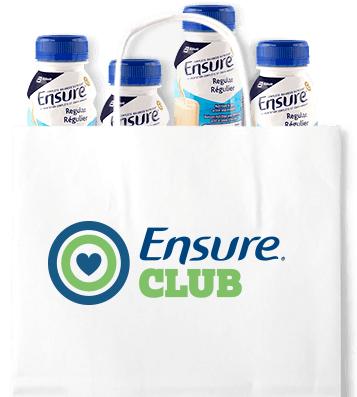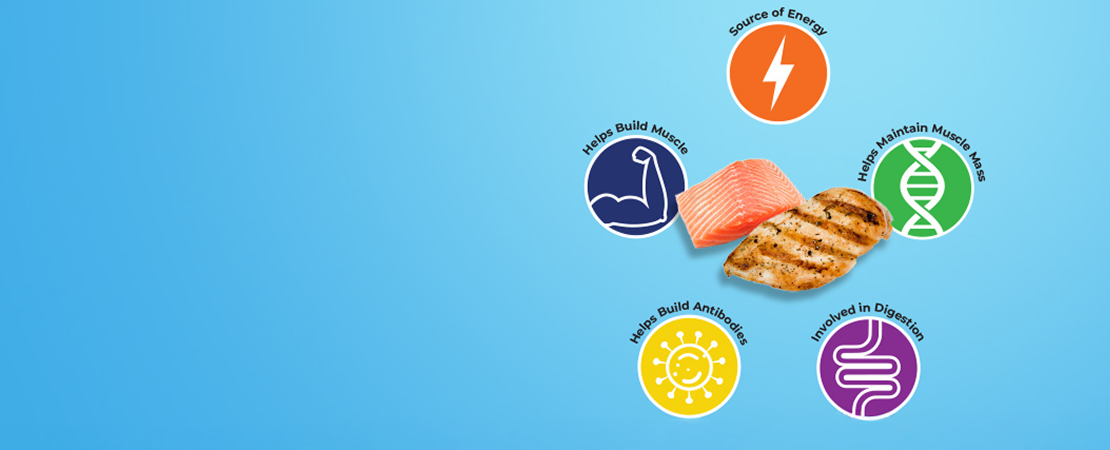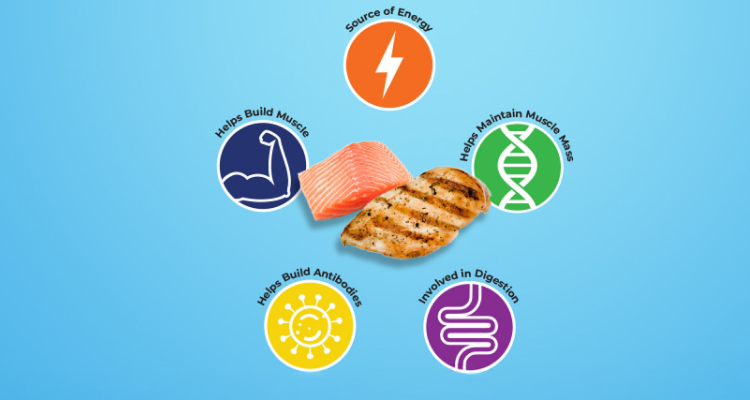1. Protein helps build and repair body tissues
Every cell in your body contains protein1. Protein can be found in your nails, skin, hair, muscles—virtually every cell in your body! If you’re looking for ways to add protein to your diet, consider adding Ensure® Protein Max 30 g—it’s an excellent source of protein! It serves as a great snack or you can use it as a milk substitute in recipes, like in our high protein chia seed pudding.

2. Protein helps build antibodies
Antibodies are part of our immune system; they help protect against bacteria and viruses. Including protein in your diet helps you build antibodies. There are so many different creative ways to include more protein in your diet, such as topping your meals with high protein foods2. Check out our article called “How to get more protein in your diet” for inspiration and details.

3. Protein is a source of energy
Protein, along with carbohydrates and fat, provide the body with energy in the form of calories. For energy to keep up†, try Ensure® Protein Max 30 g . You could also try Ensure® High Protein 16 g to fuel yourself during days on-the-go.

4. Protein is involved in digestion and hormone regulation
The body uses dietary protein as building blocks to make enzymes or hormones, which help us digest. For example, enzymes work to break down fats, starch and protein to help us digest and absorb nutrients in the body. Hormones acts as messengers that send signals to different areas of the body, ensuring proper metabolism of nutrients.

5. Other protein benefits
Research has also shown that protein can help keep our muscles working well, which is helpful during the natural aging process3. These studies demonstrate that increasing protein intake can contribute to the physical functioning of the body.
When it comes to appetite and hunger, studies have found that protein can help you feel fuller for longer4.
As you can see, protein plays many important roles in our health, so make sure to include protein with each meal—and in your snacks as much as possible. For a complete, balanced meal, enjoy your protein with colourful vegetables, whole grains like brown rice or whole-wheat bread, as well as herbs and spices for flavour. Speak to a registered dietitian to understand if you are meeting your protein needs.

† From a survey of 1,038 independent-living adults aged 50+ who added 1 serving of Ensure® Protein Max 30 g per day for at least 5 days over a 2-week period, compared to control group (p<0.0001).
Mustafa, J., Ellison, R. C., Singer, M. R., Bradlee, M. L., Kalesan, B., Holick, M. F., & Moore, L. L. (2018). Dietary Protein and Preservation of Physical Functioning Among Middle-Aged and Older Adults in the Framingham Offspring Study. American journal of epidemiology, 187(7), 1411–1419. https://doi.org/10.1093/aje/kwy014
Paddon-Jones, D., Westman, E., Mattes, R. D., Wolfe, R. R., Astrup, A., & Westerterp-Plantenga, M. (2008). Protein, weight management, and satiety. The American journal of clinical nutrition, 87(5), 1558S–1561S.
https://doi.org/10.1093/ajcn/87.5.1558S
Reference used for general information:
https://abbott.mediaroom.com/2018-04-17-Abbotts-New-Ensure-R-Max-Protein-Helps-Americans-Go-for-Their-HealthGoals
Whitney, E. N., & Rolfes, S. R. (2022). Understanding nutrition (Sixteenth). Cengage. Chapter 4, Protein: amino acids.
Save more than $100
Sign up to the Ensure® Club and get coupons, meal plans, exclusive tips, and recipes!


* From a survey of 1,038 independent-living adults aged 50+ who added 1 serving of Ensure® Protein Max 30 g per day for at least 5 days over a 2-week period, compared to control group (p<0.0001).
Canadian formulation is similar to the one used in the survey. Applies to Chocolate and Vanilla flavours.
† Compared to one serving (235 mL) of Ensure® Regular. ‡ Per 330-mL serving.
§ Brand of oral nutritional supplements.




Share this article